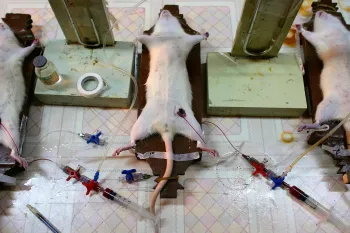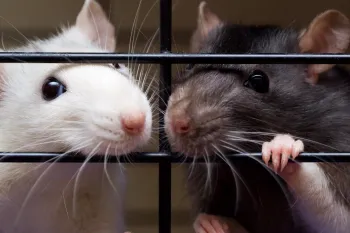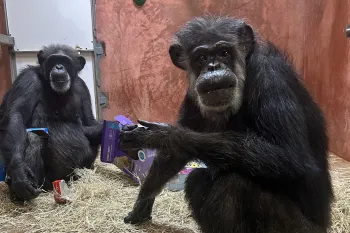Over 90% of drugs that appear successful in animal tests go on to fail in human clinical trials. This is a staggering statistic underscoring that animals are biologically different from humans, and so animal-based research can be deeply unreliable, which, in turn, hinders medical progress and slows down the advancement of our scientific knowledge.
So why are animal models still being used when kinder, scientifically robust and human-relevant methods exist? The answer, in large part, lies in how biomedical research is funded.
Despite groundbreaking advances in animal-free methods, such as 3D human tissue models, organ-on-chip technologies and AI-driven simulations, most funding for biomedical research is traditionally directed toward animal experiments. The result? A system reliant upon the use of animals continues, while human-relevant research methods are overlooked, even as the data from these human-based technologies are key to addressing the public health challenges of our time.
It’s estimated that more than 190 million animals are used for testing and research across the globe every year, including mice, rats, rabbits, primates, dogs and fish. Research labs continue to induce symptoms in animals in attempts to artificially mimic human diseases—a practice that was commonplace 50 years ago—despite major differences between these models and real-world human conditions. Artificial induction of disease symptoms in animals as 'models' for human conditions continues to this day, even despite major differences between animals and humans and immense advancements in technology.
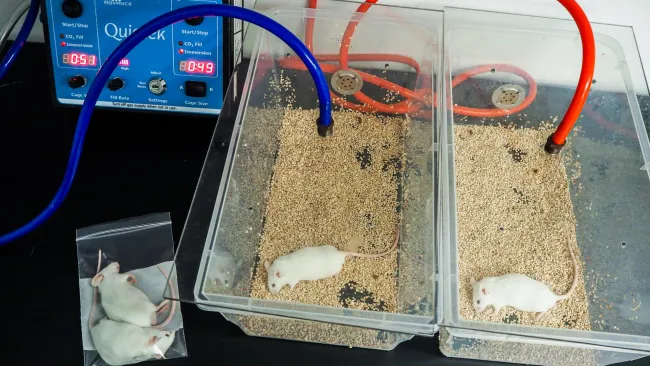
Roger Kingbird/We Animals
But there are signs of progress: Recently, the U.S. National Institutes of Health, which is the largest funder of biomedical research in the world, announced that it is moving away from animal testing and research. Unlike the cosmetics and chemicals testing sectors, the use of animals for biomedical research is not dictated by regulations. This means that change will require challenging the entrenched culture of biomedical research and helping address the systemic barriers that hinder the development and application of human relevant methods
The most powerful lever available to move biomedical research away from animals on a large scale is redirecting funding toward human-relevant approaches. As the founding member of the Biomed21 Collaboration, a global initiative driving a paradigm shift from animal-based research to human-relevant science, we at Humane World for Animals have sparked the conversations necessary to move funding in the right direction.
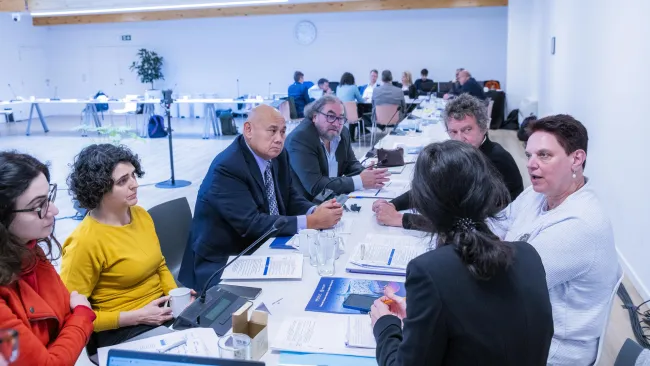
Harry Nakos/Babylonia/Creative Affairs Bureau
We launched our international workshop series in Brussels in November 2024. This convening, which was attended by policy specialists, researchers and funding agencies—including representatives of the European Commission, the European Innovation Council, the European Public Health Association, the Netherlands Cancer Institute and many others—was a milestone in building a broad consensus with the scientific community and EU agencies in support of ambitious and transformative policies in favor of animal-free methods in biomedical research. The European Council is soon expected to vote on the European Research Area Policy Agenda 2025-2027, which would make non-animal methods a priority action and lead to greater coordination from its Member-States to support them. This is a welcome development, but the EU now has a tangible opportunity to go much further through next long-term budget due to be proposed by the Commission in the second semester. Based on the conclusion of the Biomed21 workshop and together with our partners, we will be working hard to direct unprecedented funding towards animal-free methods throughout the discussions of the budget.
Next, we headed to India in December 2024, where speakers from the European Commission, and NIH travelled to meet their counterparts in India from the largest research institutions of the country, including the Biotechnology Industry Research Assistance Council, the Indian Council of Medical Research and the Office of the Principal Scientific Adviser to the Government of India. Workshop attendees explored in-depth strategies to support non-animal methods with a special focus on funding strategies. Attendees called for the development of a funding road map to help foster strategic collaborations, drive innovation and help position India as a global leader in developing and using animal-free technology. We are currently developing this roadmap with our partners, and it will be launched before the end of the year.
We rounded off the series with an event in Brazil in March 2025, organized in collaboration with the think tank Centro de Gestão e Estudos Estratégicos. We gathered scientists from the most prestigious Brazilian institutes, funding agencies, startups and others, to discuss the National Strategy for Science and Technology. With strong calls from participants to increase spending on animal-free research, we’re in a favorable position to ensure animal-free methods are included within the renewed national strategy.
Across three continents, one key message resonated: Governments, academic institutions and other relevant funding agencies must shift funds toward human-relevant, animal-free research, investing in innovative technologies that can prioritize human-specific research in diseases and public health and spare countless animals from suffering.
It’s astounding to think that the labs of the 1970s—where stacks and stacks of tiny, bare, metal cages would contain hundreds of animals who had been disfigured by devices or infected with diseases—so closely resemble the labs that are still in operation today. It’s absurd that this is still the horrifying reality for millions of animals today, in an age characterized by advanced technologies in pretty much every industry. And the public is right to increasingly question the use and the ethics of animal research. Now it’s time for the research sector to catch up.
We at Humane World for Animals are driving this conversation, which is an essential step toward transformative policy change to end animal research. Let’s create a world where scientific progress is based on innovation, not animal suffering.
